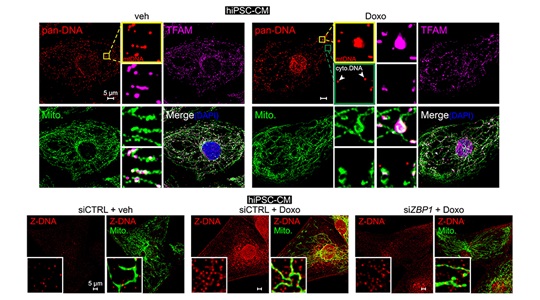A. Phillip West, Ph.D.
Associate Professor
Investigating how mitochondria shape immune and inflammatory responses in genetic disorders and aging-related diseases.
Mitochondria are multifaceted organelles integral to many cellular processes including energy generation and programmed cell death. More recently, mitochondria have emerged as central hubs in the mammalian immune system, orchestrating signal transduction cascades and metabolic switches necessary for the activation and survival of immune cells. Mitochondria are also important sources of damage-associated molecular patterns (DAMPs), which can trigger inflammatory responses when released from the organelle. Given their pleitropic roles, mitochondrial dysfunction is increasingly implicated as a cause or accelerant of numerous human diseases.
Research in the West Lab aims to: 1) define how mitochondria function as central regulators of innate immune and inflammatory responses, and 2) delineate how the mitochondrial-innate immune axis contributes to the pathobiology of genetic disorders and aging-related diseases. We are particularly focused on defining how mitochondrial genome (mtDNA) stress and sensing by the cGAS-STING pathway potentiate type I interferon and pro-inflammatory responses. We have made significant contributions to understanding how the mtDNA-cGAS-STING axis governs disease-promoting metabolic and immune rewiring in mitochondrial disorders, heart failure, and cancer.

